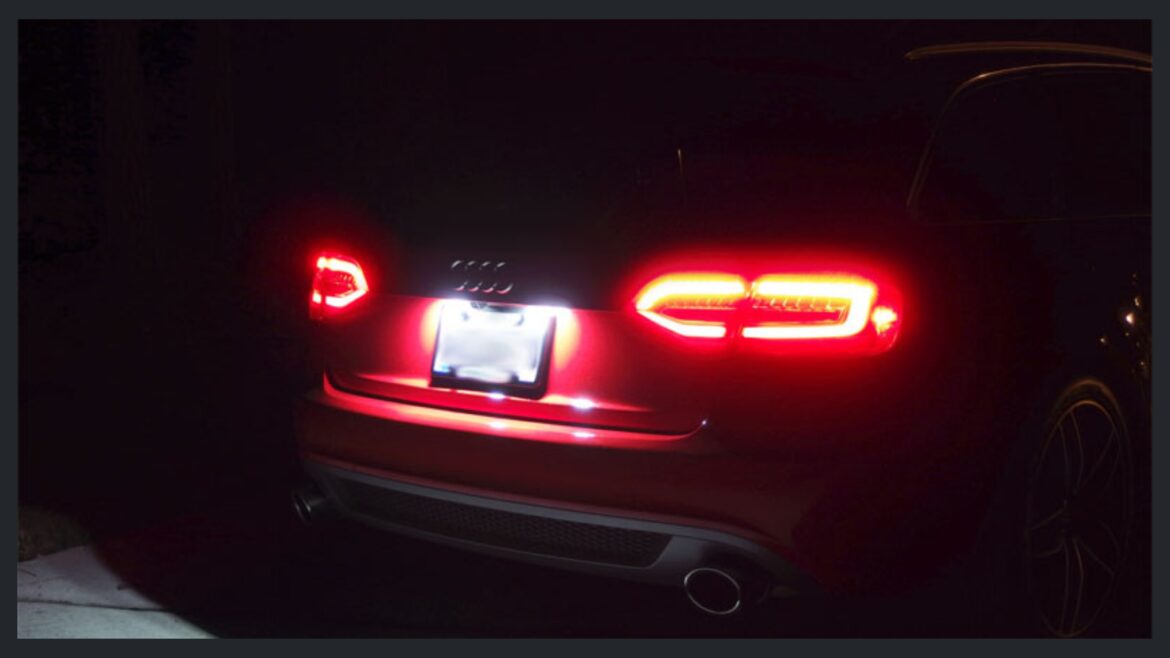
Car Alarm Keeps Going? (9 Reasons and How to Stop It)
Perhaps you’ve landed on this page because your own car’s ear-splitting siren roars in the background after frantically Googling things like “Does a car alarm go off when the battery is low?”
The alarm keeps going off even if you check and there are no mobster near your car. If you can’t turn off the alarm with your key fob, read our section on how to turn off the alarm first.
If you find yourself in this predicament many times (often in the middle of the night when people are sleeping), you may want to learn more about how vehicle security systems work, possible reasons why your alarm won’t stop going off, and how to troubleshoot the problem to avoid such rude interruptions.
How to Stop the Alarm
If you’ve tried the alarm button on your key fob and it didn’t work, here are some ways to stop that dreaded screeching noise. 1) Turn on the car
Getting into the car and turning the switch on with your regular key or fob may be enough to stop the alarm.
2) Lock/Unlock
Try to stop the alarm remotely using the lock and/or unlock buttons on your key fob. If this doesn’t work, lock and unlock the car doors using a physical key (each key fob should have one).
3) Power Switch
This is probably only an option on some aftermarket alarm systems, but there may be a switch near the driver’s feet that will turn the alarm off.
4) Remove the fuse
If other measures have failed, removing the fuse to power off the alarm may be all you need. Consult your manual for the fuse location on factory systems; however, on most aftermarket systems, the fuses are very difficult to access.
5) Reset the alarm system
If your alarm system is haunted by electrical ghosts, you may be able to reset the alarm system. Read your manual for more information.
6) Disconnect the battery
If all else fails, remove the battery (always disconnect the ground terminal first, which is usually negative). If you have a backup power source, the alarm may continue to sound until the power runs out. How do car alarms work?
There are many different types of vehicle security systems, but the basic design is always the same.
A computer (sometimes the car’s ECU, sometimes a separate module for the alarm system) receives input from sensors and receivers throughout the car. The receiver “listens” for commands from the remote via radio signals and responds by telling the vehicle’s battery-powered speakers to sound the alarm if necessary.
Security systems sometimes have a built-in backup power source in case a thief cuts the battery cables in an attempt to sneak away. A simple alarm system detects a large voltage drop B. when a door is opened, when an attached trailer electronically connected to the car is removed, etc. Then the computer can react.
Door/Trunk/Hood Lock Sensors
Newer cars have more sensors than older cars, but most alarm systems are equipped with at least door, trunk and hood lock sensors to detect when they are opened.
These sensors use a spring-activated button or lever to close a circuit (allow current to flow) when a door is opened. This current turns on the interior lights and sounds an alarm if the computer deems it necessary. Shock Sensors
More advanced systems can also determine the severity of the impact, allowing the computer to respond accordingly. In some cases, if a passerby who hits your car hits it with a crowbar, you’ll hear a small honk and a loud meow.
Having a system that can distinguish between large and small impacts is very helpful. A cat jumping on your bonnet can set off a sensitive alarm or a simple alarm, potentially waking up the whole neighborhood. In some cases, a very loud noise may hit the vehicle and set off the impact sensor.
Tilt Sensors
Some clever thieves will tow the car away to avoid setting off the alarm system. But more advanced alarm systems have found a way to deal with this.
Tilt sensors detect when the car is tilted by using mercury as a conductive metal liquid that completes a circuit.
In many cases, a tilt sensor car alarm is the only thing that can prevent catalytic converter theft (if the thief actually jacks up the vehicle). Pressure Sensor
Even though the air pressure inside and outside the car is the same, breaking a window temporarily increases the air pressure inside the car. The pressure sensor detects this small change in pressure and reports it to the computer.
Sometimes the sensor is a separate device, but some cars actually use a built-in speaker to “listen” to the pressure change.
The speaker makes sound by moving back and forth, vibrating the air and creating sound waves. Conversely, the sound waves move the speaker, and a cable sends a signal. Microphone Sensors
Proximity Sensors
They detect when someone gets too close to the car and give a pre-recorded verbal warning. If your car alarm goes off randomly when no one is around, there may be another underlying problem.
1) Faulty Key Fob
Because the key fob sends commands regarding the alarm system to your car’s computer, a faulty key fob could send a false alarm. To test this, remove the battery from your key fob, wait a day or two (or however long has passed between your last car alarm bouts), and see if the alarm turns back on.
First, try replacing the battery in your key fob if you haven’t done so recently. It’s a good idea to replace the battery every 1-2 years just to be safe. Your car’s owner’s manual should contain a section on the exact battery replacement intervals you should expect. If the problem persists and you suspect the key fob is the culprit, try resetting the key fob. You might need help from the manufacturer, or instructions might be in your manual.
You can also scan the code by plugging your car into an OBDII reader, which most auto parts stores can do for free. Not all key fob issues will result in a code, but it’s worth a try. 2) Weak or dead battery
Car alarms aren’t just there to scare off thieves or help you find your car in a large parking lot. They also act as a car alarm signal, letting you know when your battery is low. If your alarm goes off when you start your car, it might be trying to tell you something.
Check the battery voltage with a voltmeter. If the charge is 12.6 volts or higher, your battery is fine.
3) Corroded, rusted, or dirty battery connectors
If charge doesn’t flow properly from the battery to the cable, the computer may interpret this as a “low battery” and warn you. Of course, the connections must be clean for the battery to function optimally and last a long time. If the terminals are dirty, disconnect the battery and clean them.
4) Dirty Hood Lock Sensor
All sensors can get dirty or oily, but this is most likely to happen with the hood lock sensor since it is located at the front of the car. This can cause false alarms as the computer may interpret a dirty sensor as the hood being open.
The hood latch sensor is located in the hood latch assembly. Depending on the vehicle, it may be visible or hidden by a plastic cover. If the sensor is oily, dirty or grimey, clean it by wiping it lightly with rubbing alcohol and drying it with a microfiber cloth.
5) Dirty or Broken Door Lock or Trunk Sensors
These may be more difficult to access since they are located inside the door or trunk, but you may be able to clean them or check the voltage with a multimeter to see if there is anything causing a false alarm. If the door sensor is not working properly, you may see the “door open” light on the dashboard even when the door is fully closed. 6) Wiring Issues
If any of the sensors are not properly connected to the computer (this could be due to corroded or other damage to the cable, or incorrect wiring), the signal can go haywire. First, try disconnecting and reconnecting the hood lock sensor, as it is often the culprit and is relatively easy to access. If you have access to other sensors, you can do the same for them.
7) Incorrectly Installed Alarm System or Faulty Alarm Module
The alarm module is a computer dedicated to the security system. Some drivers prefer to install aftermarket alarm systems, but it is possible that one of these systems or the factory system was installed incorrectly. 8) Shock Sensor is Too Sensitive
If the sensor is programmed to overreact to small shocks, you may experience more false alarms. In some cases, you may be able to reset or reprogram the alarm system yourself to make it less sensitive – read your manual.
You may be able to reprogram it by plugging a diagnostic tool into the OBDII port. There may also be a dial somewhere under the dash.
9) Environmental Causes
Parking your vehicle in a place that makes a lot of rumbling noises may set off the alarm. A passing train or large truck may create just the right (or wrong) vibration frequency to set off the alarm. Try parking in a different location to see if that reduces false alarms.
Strong winds can also set off the sensor and sound the alarm. Very hot weather can cause the hood to expand, which can activate a switch in the hood and sound the alarm.
Extreme cold can actually cause false alarms, as a drop in battery voltage can cause the alarm to sound (doors opening causes interior lights to come on and battery voltage to drop). Cold temperatures can cause voltage drops. You can also do a stress test: park your car for 10-15 minutes with the engine off and the headlights on, then start the car while someone is watching the headlights.
This test may not work on newer vehicles as the headlights may turn off automatically to prevent unnecessary battery drain.

